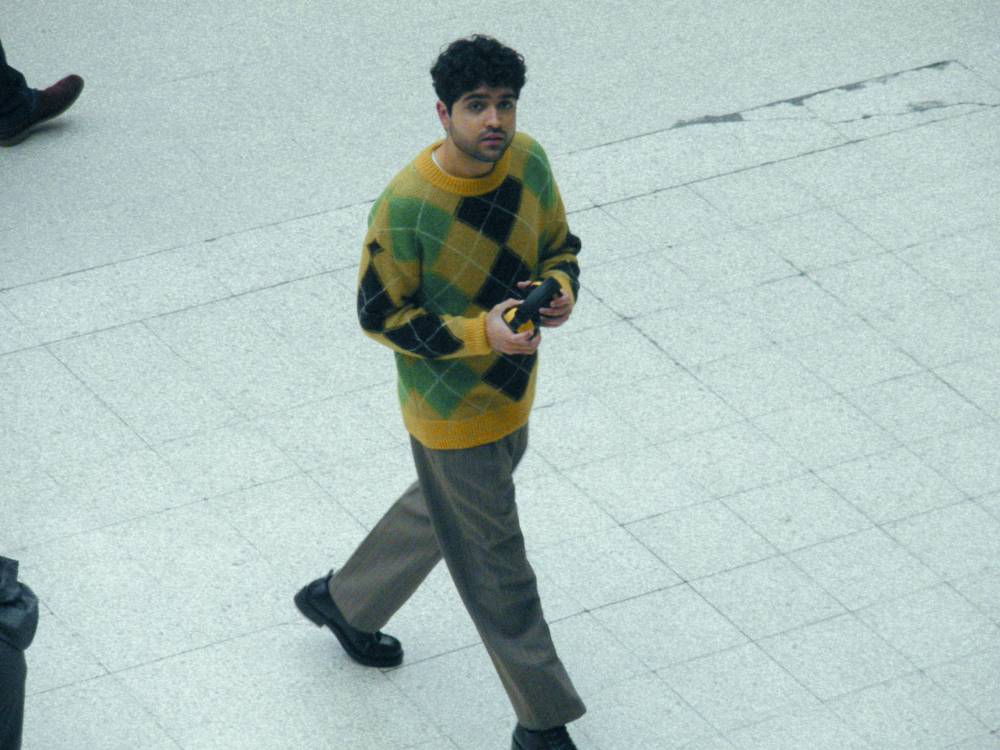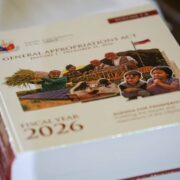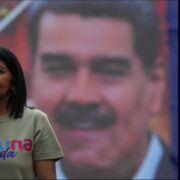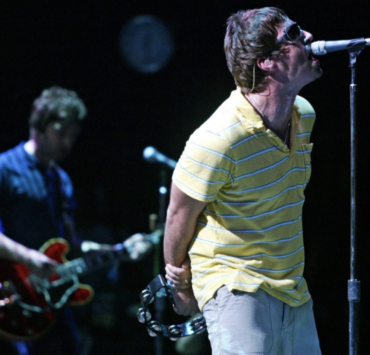Dhruv lets go of pressure to produce ‘creatively honest’ debut album

Dhruv put out his first very single, “Double Take,” in 2019 when his prospects in the industry were still unsure.
The smooth R&B song, which talks about falling in love with a best friend, didn’t immediately take off, or make a killing in streaming. But when it unexpectedly did two years later, Dhruv found the clarity and certainty he was looking for.
“It obviously gave me a career. Because before that, I wasn’t so sure whether I was really in the music industry or not. Its success led me to sign a record label deal. It made the process of being in the industry have a bit more structure,” he told the Inquirer in an interview arranged by Sony Music Philippines.
“Double Take” went viral on TikTok, helping it gain worldwide prominence. It has since amassed 896 million streams on Spotify alone. His success had him signing with RCA Records and Little Worry, under which he released his debut EP, “Rapunzel.”
From attending classes in statistics and data science at Yale University, he found himself touring the world and playing shows with different popular acts like Joji.
“In a way, the song definitely changed [my life],” said Dhruv, a singer-songwriter of Indian descent, who was born in London and raised in Singapore. He moved to the United States for his studies.
While he’s incredibly grateful for his journey so far, he admitted the change in his life and career came with challenges. Crucial decisions had to be made—and fast.
“When you’re going viral or the momentum is rising, you feel like you have to make many important decisions quickly,” he said. “There are all these big questions like, ‘What label should I go with?’ ‘Is my team looking out for me?’ The overwhelming feeling during the time the song was going viral was that of stress.”
Now, there are expectations. He knows he has it in him to produce a hit. But he also knows very well that, if he were to come up with equally fantastic follow-ups, he would have to set such notions aside, and approach music-making with the same kind of insouciance he had before he made it big.
“I try my best to pretend that no one’s going to hear what I’m working on because I found that thinking too much about success or the commerciality of it all made it hard for me to come up with something I liked,” he pointed out. “There are days when I feel overwhelmed by the pressure, but I have become better at managing that.
That was exactly what Dhruv did as he started work on his debut studio album, “Private Blizzard.” He saw to it that all 12 tracks—recorded in Nashville with Grammy-nominated producer JT Daly—came from a place of “creative honesty.”
The album plays out much like the changing of seasons, from autumnal, wintry confessionals born out of pain and numbness (“Ode to Boredom,” “Grieving”) to more romantic and joyous tunes that evoke the colors and warmth of spring and summer (“The Morning,” “One and Only”).
And while the album was inspired by a recent “turbulent” period in his life, he balanced out the vulnerability in his songwriting with bigger, more dynamic sounds and productions—quite the departure from his more lofi-leaning earlier works. “I have again found a sense of rootedness in making songs. No matter how far I stray, it’s what it has always come back to. I’m so grateful for what this album has done for me and so happy for it to be out in the world,” he said.
The rest of our interview with Dhruv:
How did you find clarity amid all the noise and pressure that came with the success?
Intuition is a big part of it. It’s tuning into yourself and realizing that if you ignore what you feel is right, you’re going to have much more regret about that than if you ignore the voices of people around you who think otherwise.
Did that also include your decision to put your studies on pause? How difficult of a decision was that?
In that moment, it wasn’t difficult because it didn’t really feel like a choice. The thing that I have always wanted to do was be in music. It was my dream. It was what I was working on outside of school. It was what I spent a lot of time thinking about doing.
Education is good, but I felt like it was important to capitalize on the momentum. And in this specific field, having a full degree won’t really have an effect on whether you’re going to be a successful musician or not.
How did your parents react when they found out that you had decided to pursue music instead?
They were initially cautious. I’m Indian and so, culturally, it’s not very common to choose not to finish college. But I’m very lucky, because I had the blanket of success going into it. I had a record deal. It wasn’t like I was leaving college to just be an independent musician. And they could see how much I was working for it, so they were ultimately very supportive.
You grew up listening to Bollywood music. Did it have any influence on your music?
Bollywood songs have amazing and interesting melodies, because the ideas of harmony chords are a little different in India. When I was younger, I would watch a movie, and the hooks of the songs would be stuck in my head. That made me interested in making music and making melodies that stick in people’s heads.
You said the album is made to be played live. Is it because you now realize that touring will be part of what you do?
Looking back on the tours I had done, I now know what translates into a live setting. I have more understanding of how I am as a performer and what my tendencies are onstage. The few times I performed with a fully live band, I felt like a different performer. I felt the energy of the music and everything else so much more. I have become more confident in my show being live, rather than being electronic-based.
I have noticed that your voice seems to have gotten stronger, too. I tried really hard with my vocals. When you’re a bedroom artist for some amount of time, then you have to perform live, you realize that, “Oh, God, my vocal endurance isn’t where it needs to be.” I have been doing vocal training with a teacher for the past few years.
I realized that you have to work on every aspect of your being a musician. I thought I was going to focus only on the writing or whatever. But I was mistaken as there are so many parts to the job.
“Private Blizzard” is born out of boredom or numbness.
I don’ know if it’s just a product of getting slightly older, but I definitely felt very jaded at the start of making the album. You then realize that there’s hurt behind that feeling of numbness; there’s pain you’re concealing. The beauty of music is that it can be a medium that allows you to unpack.
But as I went along, I started feeling more inspired and romantic, more excited and hopeful in general. The album ends on quite a positive note.
This is your second time in the Philippines. How do you find the local fans?
Everybody here is very supportive, so warm. I played a show here a year ago, and people came prepared. They sang, they were engaged. Afterwards, the fans gave me gifts. It’s just such a sweet community of listeners and people who genuinely love music.
















